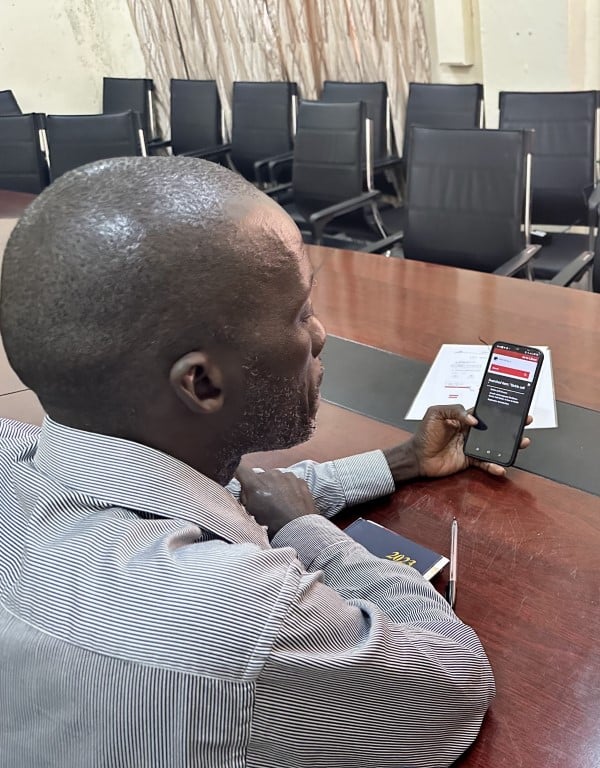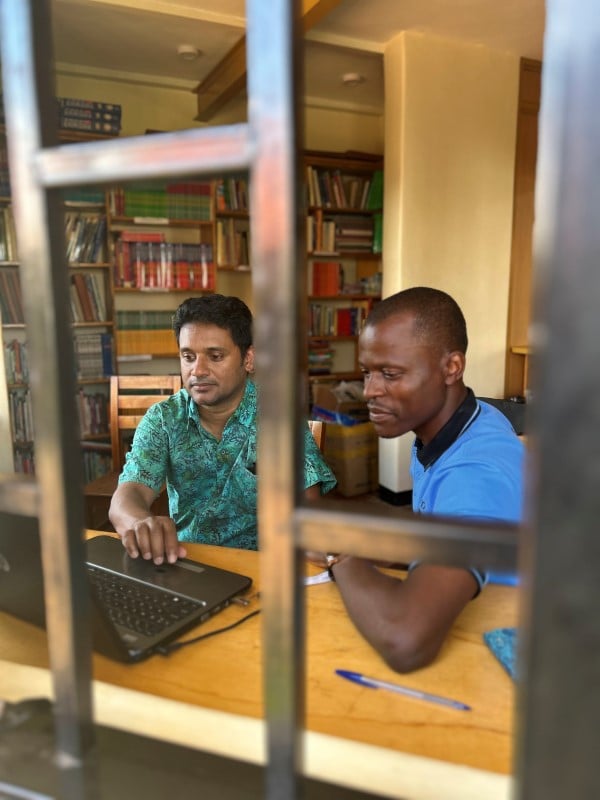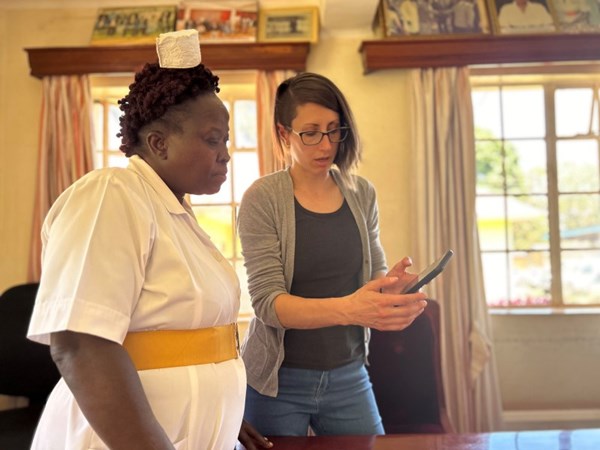You open your email and find a message from your supervisor reminding you to sign up for classes or complete an online module to earn your continuing education (CE) points.
You groan, reminded of the mundane act of sitting in front of a computer to go through a procedure or protocol you have seen multiple times.
Meanwhile, on the other side of the world, in a resource-challenged hospital, a health professional frantically scrolls through Google or YouTube to understand that same procedure while simultaneously attending to a patient. Their internet and electricity connections are frequently interrupted, and they ultimately give up their online search.
Continuous/continuing medical education (CME) is defined as “educational activities that help medical practitioners maintain competence, learn about new and developing areas of their field, and improve patient care” (CMESworld, 2024). In resource-challenged countries, the main obstacles to establishing or sustaining CME programs include a lack of mentorship, unawareness, and financial constraints, as well as unreliable internet connectivity and electricity shortages. These challenges ultimately contribute to struggling health care systems with gaps in knowledge and skills, poor technological integration, and difficulty in capacity building.
Continuing Medical Education on Stick (CMES) is an initiative of Techies Without Borders (TWB) aimed at addressing these challenges. The initiative offers two solutions. Firstly, USB drives containing CME content can automatically update with new content from the CMES server whenever the user connects to the internet. This solution is ideal for rural settings or small clinics with a limited number of health care workers. The second solution is the CMES-Pi, a Raspberry Pi-based offline server that facilitates access to CME content through users' iOS or Android devices via TWB’s phone application. The app allows users to download from the CMES-Pi without using phone data and is an ideal solution for low-resource settings where numerous users share one device. The content available on the CMES platforms primarily focuses on emergency medicine. There are ongoing efforts to expand the content to include areas such as tropical infectious diseases and malnutrition. Currently, partnerships are in place with various organizations to support this initiative, including EM Reviews and Perspectives (EM:RAP), emDocs.net, EM Cases, Life in the Fast Lane (LITFL), and the World Health Organization (WHO).

Techies Without Borders is advancing access to quality CME around the world.
To date, the CMES program is installed in 19 low and middle-income countries (LMIC) and serves more than 5,500 physicians who care for 13.5 million patients. A variety of health care workers utilize CMES, including consultant/attending physicians, resident physicians, nurses, prehospital personnel, pharmacists, and medical students. The TWB team is continually working to tailor the content available on the CMES platform to the needs of users based on feedback received. A qualitative research study and a comprehensive curriculum map from 2019-2024 were developed this year to identify gaps in the content disseminated through the CMES platforms. Initiatives to foster program engagement are ongoing, including a monthly CMES Journal Club via Zoom. The Journal Club is currently being piloted with African partner sites and will be expanded globally by the end of 2024. Additionally, monthly emails are delivered to over 1,000 global CMES users containing a case of the month and multiple-choice board review questions based on the content available on the CMES server.

CMES is helping to improve outcomes for millions of patients globally by ensuring health care teams can access high-quality, updated medical education.
Feedback from users has indicated that the CMES program has made an incredible improvement in their access to CME. The following are selected quotes from users:
“So for me, I think [it] is the way forward. Some of these things may not have been available. Even if they are available, maybe because people would have to go into journals and maybe sometimes textbooks and stuff like that. So the access to information for me is actually key and the access for health information this here would actually help a lot for people to actually have information, access to information…and you know this access to information also can bring a lot of change.”
“Sometimes…it's difficult to have medical materials. Sometimes you have to pay…a lot to get them. But...if I'm getting them for free, I think it will just expand my knowledge and my understanding on certain things.”
“We were all particularly amazed by the…advancement and the sophistication of the app and like also brought us early and we felt that we in this part of the world [we] struggle a lot to have access to some of the materials.”
Conclusion
In summary, the TWB team has developed novel, low-cost, and scalable solutions to facilitate ease of access to high-quality CME for health care workers in low-resource settings. This unique initiative is driven by volunteers with skills in information technology (IT), EM, nursing, business, and financial administration. Volunteers work tirelessly to provide much-needed medical information at the bedside, no matter where that bedside is.



